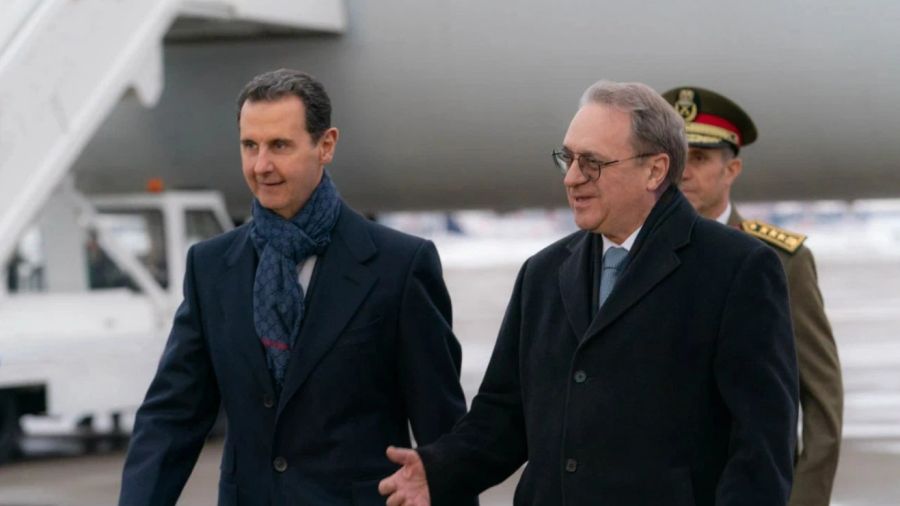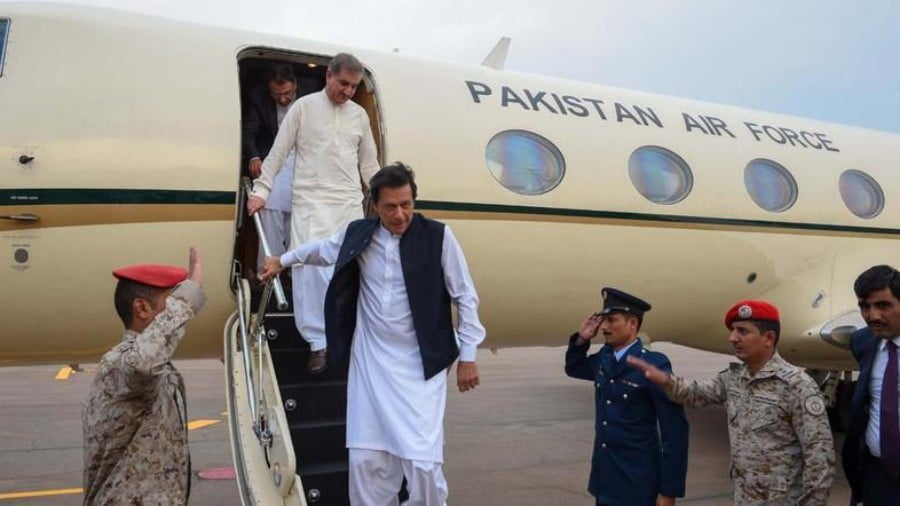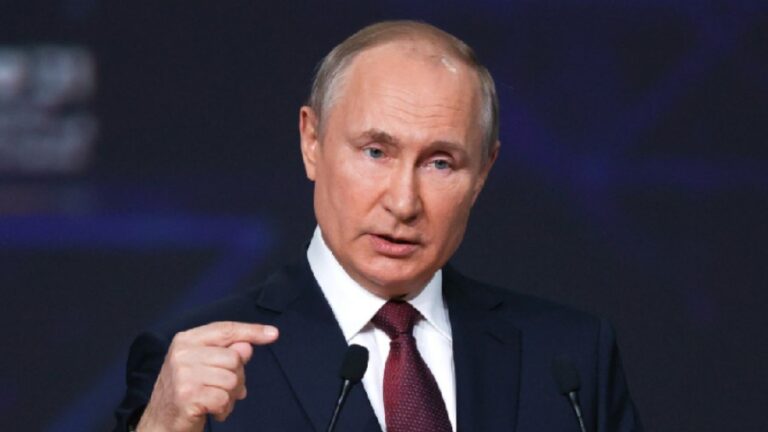Bashar al-Assad’s Visit to Moscow and the Changing Face of the Middle East
Today, it is becoming increasingly clear to everyone that the very effective diplomacy of Moscow and Beijing is radically changing the face of the Middle East. In particular, the unexpected breakthrough in Syrian-Turkish relations after Moscow’s proposal last December to Ankara and Damascus to resume dialogue and return to cooperation is indicative of this. On March 10, China managed to significantly consolidate the shifts in the Middle East by using its close economic ties with Saudi Arabia and Iran to bring them closer together to establish peace and stability. These events essentially finalize a 40-year era during which the United States actively deepened regional tensions, particularly between Riyadh and Tehran, fomenting conflicts in Iraq, Syria, Yemen, and Lebanon.
The changes taking place in the Middle East are particularly remarkable not only because of the absence of any significant US involvement in them, but also because of the apparent decline of Washington’s hegemony in the region. While the Biden administration tried to expand the depth and scope of the “Abraham Accords” and create a new security architecture in the Middle East to “contain Tehran,” not only Russia but also China have noticeably strengthened their position and ties with countries in the region, while Washington’s influence has begun to diminish noticeably. Ultimately, the United States is no longer in a position to revive projects like the “Greater Middle East,” and is only trying to prevent the situation from becoming worse for itself. The recent visits to the Middle East by the Chairman of the Joint Chiefs of Staff of the US Armed Forces, Army General Mark Milley, who first came to Israel and then secretly to northeast Syria, do not help to improve the image of the United States in the region. Nor did the subsequent visits of the US Secretary of Defense Lloyd Austin to Jordan, Israel, Egypt, Iraq (particularly Baghdad and Erbil).
After entering the battlefield in Syria in 2015, Russia has managed to prevent Washington’s insidious plan in that Arab country and split the Atlantic front. Together with Turkey and Iran, Russia has built the Astana platform and is now going to turn it into the Astana Quartet by including Syria in it.
Beijing, actively involved in the Middle East region besides Moscow and operating within the Belt and Road project, has joined in forcing the US to leave Syria and has developed successful cooperation with America’s traditional allies, such as Israel and Saudi Arabia.
With tangible support from Russia and China, Iran has not only withstood US sanctions, but has continued to build influence in the region despite the various intrigues of Washington and Tel Aviv. Among the Persian Gulf countries, Qatar and the UAE are successfully developing relations with Iran, and energy cooperation between Riyadh and Moscow is growing stronger.
As a result, the countries of the region now have, for the first time, a unique opportunity to arrange their lives without Western dictate and interference, developing cooperation with Russia and China that is truly beneficial to the region. And although the February 6 earthquake to a certain extent slowed down the negotiation process between Syria and Turkey with the participation of Russia and Iran, which joined in the mediation effort, nevertheless the recovery of the situation is evident. And this, in particular, is confirmed by the sincere deep response in the Arab world to the natural disaster that befell Syria. Algeria, Egypt, Iraq, Libya, the United Arab Emirates and a number of other states have urgently organized the delivery of humanitarian aid to the Syrian airports of Aleppo, Damascus and Latakia. Most Arab leaders have started to openly advocate the lifting of harsh anti-Syrian sanctions imposed by the West 12 years ago.
Given that political processes in the region have recently gained new momentum, especially in light of the new prospects in the Middle East region offered by the Iranian-Saudi rapprochement, Syrian President Bashar al-Assad arrived in Moscow on March 14 to work out a joint strategy with Russia. In addition to Russian President Vladimir Putin, the meeting was attended by Russia’s Foreign and Defense Ministers, Sergey Lavrov and Sergei Shoigu respectively. The Russian side was also represented by Minister of Finance Anton Siluanov, Minister of Construction Irek Faizullin, and Yuri Ushakov, presidential aide on international affairs, which by itself may indicate the list of topics discussed, in which the parties showed a particular interest. Namely, further development of Russian-Syrian cooperation in political, trade and economic and humanitarian spheres, and the prospects for a comprehensive settlement of the situation in and around Syria. The talks between the two leaders lasted for three hours and were complemented by meetings of bilateral business groups, which allowed for detailed discussions on the continuation of the Syrian settlement, the Syrian-Turkish relations and many other relevant issues.
As Bashar al-Assad noted at the conclusion of the meetings, “this visit will open a new phase of relations between the countries.” The Syrian leader does not hide his gratitude to Moscow for helping to bring the SAR out of isolation, including in the Arab world, in particular in restoring relations with Saudi Arabia, which many in Syria, including the opposition forces, have traditionally blamed for starting the bloody war. The Syrian president, during a meeting with Russian head of state Vladimir Putin, reiterated that Damascus supports Russia in the fight against “old and new Nazis.” At the same time, Assad stressed that Syria’s position is based on the fact that the world really needs to be stabilized.
The joint efforts of Russia and Syria have contributed greatly to the international fight against terrorism, Russian President Vladimir Putin said. He also stressed that Moscow, as a true friend of Damascus, is trying to support the country after the devastating earthquake.
The fact of the Syrian leader’s visit to Moscow taking place exactly on the same day as the start of the Russia-Iran-Syria-Turkey quadrilateral talks at the level of deputy foreign ministers was obviously not a coincidence. After all, the main purpose of these talks is to help Ankara and Damascus to overcome their political differences and, in the long term, restore relations completely. Although Assad, as usual, is counting on Russia’s help, Moscow clearly wanted the assurances of his readiness to begin normalizing relations with Turkey. Several experts said before the meeting that the Syrian president made no secret of the fact that he was putting forward different conditions in return for the acceptance of Russian offers of peace with Ankara because he did not want to give Turkish President Erdoğan political points before the elections. In addition, the Syrian president clearly wanted to make it clear by his high-level visit that Damascus is not ready to sign any agreements with Turkey unless Ankara meets a number of conditions. In particular, until it guarantees unconditional and rapid withdrawal of Turkish troops from Syrian territory, whose presence there Damascus considers illegal. It is also very important for the Syrian side that Ankara stops supporting Damascus’ opposition groups in Idlib in the north of Syria.
Although not all the t’s were crossed and i’s dotted regarding the establishment of peaceful life in Syria, nevertheless, this meeting in Moscow was undoubtedly an important step towards it and in terms of marking significant changes in the situation in the Middle East.
Taking into account the fact that these negotiations with Assad in Moscow, as well as the rapprochement between Saudi Arabia and Iran are taking place on the eve of the Muslim holy month of Ramadan (this year it begins on March 23), one could hope that the search for a peaceful solution to the existing problems, very much needed in the Middle East, will continue. And also that Moscow and Beijing’s diplomacy to fundamentally renew the face of the Middle East will succeed.







